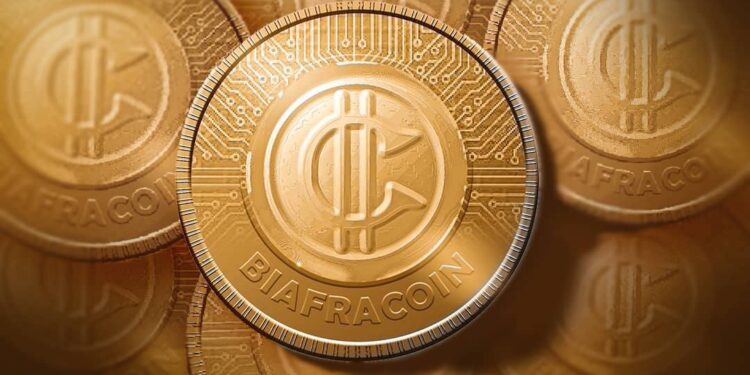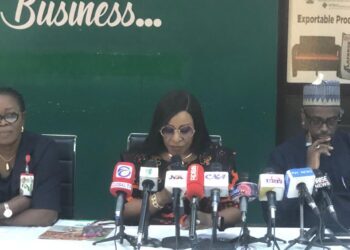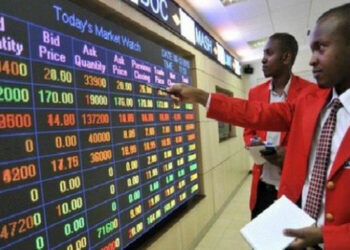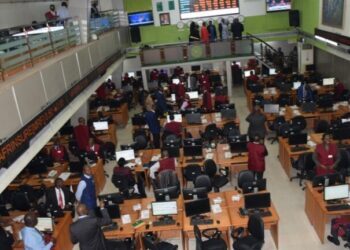Biafra Republic Government In-Exile has officially launched its Biafracoin Cryptocurrency website for easy savings and wealth creation for Biafrans and other users.
The Prime Minister of BRGIE, Simon Ekpa, disclosed this in a statement on Thursday through his official X handle.
He added that with USBT, the Bank of Biafra offers a whopping 18 per cent interest on Biafracoin investment staking while other investments provide a rate as low as 5 per cent.
“As Nigeria’s economy drifting, the government has provided alternatives for Biafrans and others who wish to save their wealth and money through Biafracoin on https://usbt.bankofbiafra.org
“With USBT, the Bank of Biafra offered 18 per cent interest on Biafracoin investment staking while others offered as low as 5 per cent”, he stated.
The development comes barely three weeks after BRGIE unveiled the Biafracoin.
https://nigeriannewssphere.com/biafra-brgie-launches-biafracoin-website-for-digital-savings-wealth-creation/?amp=1
Biafracoin is a decentralized cryptocurrency platform for selling and staking USBT tokens; eligible users are 18 years and above.
See details FAQs and Terms & Conditions of Biafracoin
Understanding Staking and Decentralized Finance at Biafra Buy/Stake Inc
What does Staking entail?
Staking within the realm of cryptocurrency involves the act of securing or immobilizing a designated quantity of tokens in a digital wallet to actively support the functionality and governance of a blockchain network. In exchange for their involvement, participants earn incentives, usually in the form of supplementary tokens. It parallels the concept of accruing interest in a conventional banking setting, albeit within the context of blockchain technology.
What Rewards Can I Obtain Through Staking with USBT?
With the USBT staking program, you can earn rewards on their staked tokens with our structured framework:
– After a 0-hours lockup period, you start receiving rewards based on the ROI at the time of your initial investment.
What Risks Should I Be Aware of When Staking?
Although staking presents opportunities for rewards, it’s essential to consider potential risks:
– Market Volatility: Fluctuations in token value due to market conditions may affect the final value of staked tokens, potentially resulting in gains or losses.
– Liquidity Concerns: Tokens committed to staking are not readily available for trading or liquidation, which could pose challenges if immediate access to funds is required.
– Smart Contract Vulnerabilities: Inherent to blockchain activities, smart contracts governing staking operations may contain bugs or vulnerabilities, exposing staked assets to potential risks.
Legal Disclaimer
Blockchain investments, including staking, are subject to high market risk. Biafra Buy/Stake Inc. does not guarantee any returns on staking investments. We advise our community members to exercise due diligence and caution and to invest responsibly within their financial limits.
What is Decentralized Finance (DeFi) ?
Decentralized Finance (DeFi) embodies a suite of financial services built atop blockchain technology, primarily leveraging Ethereum. These platforms facilitate lending, borrowing, trading, and yield farming of cryptocurrencies, eliminating the necessity for conventional financial intermediaries such as banks. DeFi endeavours to establish an inclusive, transparent, and accessible financial ecosystem.
Additional Points to Note:
– Network Support: Staking plays a pivotal role in upholding the integrity and security of the blockchain network. Your active involvement contributes to its overall robustness.
– Tax Considerations: Keep in mind that staking rewards might trigger tax obligations depending on your jurisdiction. Seek guidance from a tax professional for tailored advice.
– Educational Resources: We advocate for the utilization of educational materials to gain a comprehensive understanding of blockchain technology, staking mechanisms, and DeFi protocols.
Remember, your engagement in staking and DeFi transcends mere investment; it signifies a commitment to fostering a decentralized future. This aligns with the mission of Biafra Coin Inc. to empower communities through renewable energy solutions and equitable financial frameworks.
Terms and Conditions for Biafra Coin (USBT)
1 Introduction
Welcome to Biafra Coin (USBT). These Terms and Conditions govern your use of our services and the sale, purchase, and staking of USBT tokens. By accessing our platform, you agree to comply with these terms.
2 Services Offered
USBT provides a decentralized platform for the sale and staking of USBT tokens to support free energy research and offer decentralized financial services.
3 Eligibility
To use our services, you must be at least 18 years old or of legal age in your jurisdiction and have the legal capacity to enter into a binding contract.
4 USBT Token Sale and Purchase
Tokens are available for purchase during the public sale and subsequent periods as announced. The price of USBT tokens is subject to change based on market conditions.
5 Staking
Users can stake USBT tokens to earn rewards. Staking terms vary, and rewards are based on the duration of staking.
6 User Responsibilities
Users are responsible for the security of their own wallets and credentials. Users must comply with all applicable laws and regulations in their jurisdiction.
7 Risks
Cryptocurrency investments carry inherent risks, including market volatility and regulatory changes. Users should perform their own due diligence and invest responsibly.
8 Intellectual Property
All content, trademarks, logos, and service marks displayed on the platform are our property or the property of other third parties.
9 Disclaimer of Warranties
Our services are provided “as is” without any warranties of any kind, either express or implied.
10 Limitation of Liability
We shall not be liable for any indirect, incidental, special, consequential, or punitive damages arising out of or related to your use of our services.
11 Indemnification
Users agree to indemnify, defend, and hold harmless USBT and its affiliates, officers, agents, employees, and partners from any claim or demand, including reasonable attorneys’ fees.
12 Amendments to Terms
We reserve the right to modify these terms at any time. Continued use of our services following such changes constitutes your acceptance of the new terms.
13 Governing Law
These terms shall be governed by and construed in accordance with the laws of the jurisdiction in which USBT is registered.
14 Dispute Resolution
Any disputes arising from these terms will be resolved through arbitration in accordance with the rules of the jurisdiction.
15 Contact Information
For any inquiries or complaints regarding our services, please contact us through our official channels or https://usbt.bankofbiafra.org











